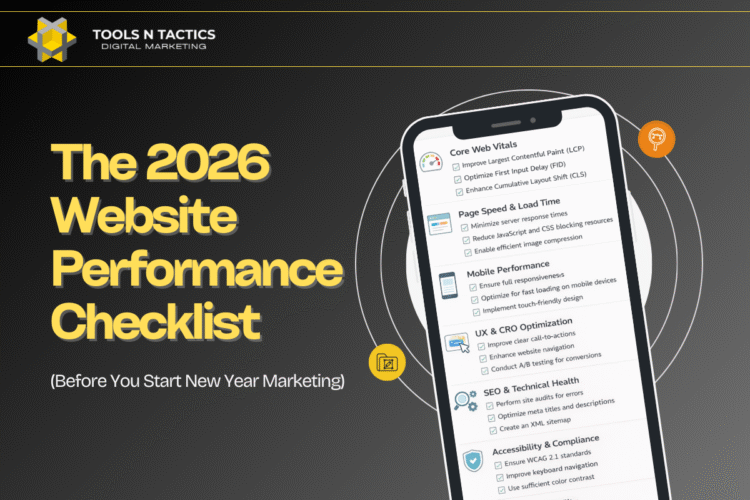

In the rapidly changing world of digital marketing, staying ahead requires effective keyword research tools. These resources are essential for refining your SEO strategy, identifying high-traffic terms, and gaining insights into your competitors. The best keyword tools for SEO in 2025 empower you to enhance your content, drive traffic, and connect more effectively with your target audience.
Utilizing powerful keyword research tools enables you to optimize your website and improve visibility in search engine results. With the right features, these tools can help you uncover valuable keywords that your potential customers are actively searching for. This information is crucial for tailoring your content to better meet user intent and increase engagement.
As you navigate through this landscape, understanding how to leverage these tools can transform your approach to SEO. From free options to advanced paid solutions, choosing the right keyword research tools can significantly impact your online presence, ultimately leading to improved business growth.
How Keyword Tools Drive SEO Success in 2025


Effective keyword tools are essential in navigating the complexities of SEO in 2025. They empower you to identify valuable keywords that align with search intent, optimize content strategies, and enhance search engine visibility.
Why Keyword Research Still Matters
Keyword research forms the foundation of successful SEO. It helps you understand user search behavior, allowing you to target the right keywords tailored to your audience’s needs. By analyzing search volume, you can prioritize keywords that will drive organic traffic. Ignoring keyword research puts your digital marketing efforts at risk, leading to poor search engine rankings.
Tools like Google Keyword Planner and Ahrefs provide insights into search trends and competition levels. They reveal which keywords are gaining traction and how to optimize your content accordingly. Without this data, your SEO strategy lacks direction and efficiency.
SEO Trends Shaping Tool Choices
Staying ahead of SEO trends in 2025 influences your choice of keyword tools. The increasing focus on user experience and voice search necessitates tools that offer advanced features. You need tools that can analyze search intent, which goes beyond mere keyword selection.
Incorporating AI-driven tools can enhance your strategy by predicting user behavior based on real-time data. Additionally, mobile search optimization is crucial, making tools with mobile-friendly data insights indispensable. Adapting to these trends allows you to refine your SEO strategies, thus improving your visibility in search engine result pages (SERPs).
Types of Keyword Research Tools
Understanding the types of keyword research tools helps you make informed choices. There are three main categories you should consider:
- Basic Keyword Research Tools: These tools, like Ubersuggest, help you generate a list of keyword ideas based on your input.
- Comprehensive SEO Suites: Options like SEMrush and Moz provide keyword research along with competitor analysis, on-page SEO suggestions, and more.
- Niche and Local Tools: If you’re a local business, tools like Keyword Tool.io can give you insights tailored to your geographic area and services.
Each tool serves a purpose depending on your specific SEO goals. Selecting the right one can significantly enhance your ability to target relevant keywords and improve your organic traffic.
Essential Features to Evaluate in Keyword Tools
When selecting a keyword research tool, it’s important to focus on key features that enhance your SEO efforts. Evaluating these aspects can help you choose a tool that not only meets your needs but also maximizes your content strategy.
Accurate Keyword Data and Metrics
Reliable keyword tools provide precise data that reflects current search trends. Look for metrics such as keyword search volume and keyword difficulty. High search volume indicates popular terms, while difficulty shows how competitive they are. These metrics are crucial for determining which keywords could effectively boost your site’s visibility.
Additionally, consider tools that offer historical data. This allows you to analyze trends over time, helping you identify seasonal keywords. A comprehensive keyword database can provide insights into various niches, which is beneficial for diversifying your keyword strategy.
Comprehensive Keyword Suggestions
Keyword tools should generate a broad range of keyword suggestions, including long-tail keywords. These are usually less competitive and can help target specific demographics searching for niche content. A good tool offers suggestions based on your primary keywords and also includes variations that may enhance your reach.
Look for features that allow filtering of suggestions by metrics like search volume and competition level. This enables you to focus on terms that align with your content goals. Additionally, some tools provide related topics or content ideas, assisting you in creating comprehensive content that engages your target audience.
Competitor and SERP Analysis
Understanding your competitors’ keyword strategies is vital for effective SEO. Keyword tools should include competitor analysis features that allow you to identify which keywords are driving traffic to their sites. This insight can help you refine your own keyword focus and uncover gaps in their strategy.
Look for SERP (Search Engine Results Page) analysis capabilities. This feature helps you see how your chosen keywords rank against competitors. It’s essential to know what content type ranks well for specific keywords—whether articles, videos, or other formats—so you can tailor your approach accordingly.
Integration and User Experience
An effective keyword research tool should integrate smoothly with other SEO tools and platforms you use. Features that streamline workflow, such as importing/exporting data to analytics software, can enhance the overall user experience.
User interface matters too. An intuitive design allows you to navigate data easily and extract insights without a steep learning curve. Features like visualizations and customizable dashboards can aid in quickly analyzing your keyword performance.
In summary, prioritize tools that offer detailed data, extensive suggestions, competitive insights, and a user-friendly experience to optimize your SEO strategies.
Top Keyword Tools for SEO in 2025
In 2025, selecting the right keyword research tools is essential for effective SEO strategies. These tools not only help you identify high-traffic keywords but also assess competition and optimize your content accordingly. Here are some of the leading options available this year.
Semrush: All-in-One SEO Platform
Semrush stands out as a comprehensive SEO toolkit that provides a variety of features for keyword research and optimization. Its keyword magic tool allows you to generate extensive keyword lists based on a seed keyword, while the keyword difficulty feature helps assess the competition level. Additionally, Semrush offers position tracking to monitor your rankings over time, enabling informed adjustments to your strategies. The platform also includes competitive analysis, helping you discover how competitors are performing in search and what keywords they target.
Ahrefs: Powerful SEO Toolkit
Ahrefs is another robust option, particularly known for its extensive backlink analysis capabilities. The Keywords Explorer tool provides detailed keyword metrics, including search volume, clicks, and ranking difficulty. You can also view the top-ranking pages for your selected keywords, allowing you to analyze content performance. Ahrefs’ Site Audit tool helps to identify on-page SEO issues, making it easier to optimize your strategy. This combination of features makes Ahrefs an essential resource for SEO professionals looking to improve their visibility.
Google Keyword Planner: Trusted Free Solution
Google Keyword Planner remains a go-to for many marketers due to its reliability and cost-effectiveness. This tool allows you to discover new keyword ideas and obtain historical statistics, such as search volume and trends. While primarily designed for Google Ads, it also aids in organic SEO efforts by identifying relevant keywords for your niche. Additionally, you can set a budget and see estimated costs for each keyword, offering a unique perspective into potential ROI. It’s user-friendly and integrates seamlessly with Google Search Console for more in-depth insights.
Other Leading Tools: Moz, Ubersuggest & More
In addition to the tools already mentioned, several others can enhance your keyword research. Moz Keyword Explorer provides a user-friendly interface and offers unique metrics like Priority Score to help you prioritize keywords effectively. Ubersuggest, developed by Neil Patel, is valuable for generating keyword ideas along with insights on domain authority and backlinks. Tools like KWFinder and AnswerThePublic also deserve attention. KWFinder simplifies finding long-tail keywords, while AnswerThePublic visualizes questions users ask around your keywords. Each of these tools can provide significant advantages based on your specific needs and objectives.
Using Keyword Tools for Strategic SEO Results


Leveraging keyword tools effectively can significantly enhance your SEO strategy. These tools provide insights that assist in uncovering valuable keywords, analyzing competitors, and optimizing content to meet user intent.
Keyword Discovery and Expansion
Using keyword research tools is crucial for discovering new keywords and expanding your existing list. You should focus on tools that provide comprehensive data, such as search volume, competition, and trends.
Start by identifying seed keywords relevant to your business. Then, utilize tools to find long-tail variations, which often have lower competition and higher conversion rates.
Consider platforms like Google Keyword Planner or Ahrefs, which offer insights into related search queries. For example:
- Topical relevance: Focus on keywords that align with your content.
- Seasonal trends: Adjust your strategy based on when certain keywords peak in search volume.
Competitor Keyword Analysis Tactics
Competitor analysis is essential in understanding your positioning within the market. Use keyword tools to analyze your competitors’ keyword strategies effectively.
Identify the keywords they rank for by employing site audit features in tools like SEMrush or Moz. This can provide:
- Valuable insights: Learn from successful competitors and identify gaps in your own strategy.
- Keyword performance: Evaluate which keywords bring them traffic and consider how you can leverage similar terms.
It’s also beneficial to track their backlinks and content strategy. This helps you discover potential partnerships and content opportunities.
Understanding Search Intent and User Needs
Understanding user search intent ensures that the keywords you target resonate with your audience. Search intent can be categorized into informational, navigational, and transactional categories.
Tools like Surfer SEO can facilitate this analysis by helping you match keywords to specific intent. Focus on:
- Content optimization: Create content that satisfies user needs, whether it’s answering questions or facilitating purchases.
- User engagement: Monitor user metrics to assess how well your content meets search intent.
By aligning your keywords with user needs, you significantly enhance the chance of ranking well and driving traffic.
Tracking Performance and Optimizing Campaigns
Continuous tracking of keyword performance is vital for adapting your SEO strategy. Utilize rank tracking tools to monitor how your selected keywords perform over time.
Incorporate analytics to gain insights into:
- Keyword rankings: Identify shifts and understand their causes.
- Traffic sources: Determine which keywords generate the most traffic.
Adjusting your campaigns based on these insights allows for proactive optimization. Regularly conduct site audits to assess page performance and identify areas for improvement. This ongoing process ensures that your strategy remains aligned with current trends and user expectations.
Advanced Applications and Integration in Modern SEO
Understanding advanced applications and integrations is essential for optimizing your SEO strategy. These modern tools not only enhance your content but also streamline processes, improve analysis, and boost your visibility.
Content Optimization Tools and Content Briefs
Content optimization tools are vital for ensuring your content meets SEO standards. They assess various factors, including keyword usage, readability, and relevancy. Tools like Surfer SEO help you create detailed content briefs, guiding your writing to align with top ranking factors, such as domain authority and user intent.
By analyzing 500+ ranking signals, these tools enable you to create high-quality content that resonates with your audience. Integrating these technologies into your content marketing strategy ensures that each piece not only informs but also engages users effectively.
Integrating Keyword Tools with Analytics and Ads
Integrating keyword tools with Google Analytics and Google Ads is crucial for maximizing your efforts. By synchronizing keyword data from these platforms, you gain insights into what’s driving traffic and conversions.
For instance, you can identify high-performing keywords and adjust your PPC campaigns accordingly. This synergy allows you to refine your targeting strategies and improve your return on investment (ROI) while ensuring that your content remains relevant in a competitive landscape.
Leveraging Data for Local and Global SEO
When focusing on SEO, leveraging data for both local and global strategies is essential. Local SEO tools help you track performance in your target areas, optimize your listings, and build local citations to increase visibility.
Using tools like rank trackers can provide personalized insights into how well your keywords rank in specific regions. For global strategies, keyword research tools can uncover opportunities across various markets, ensuring your link building and content creation efforts are appropriately tailored for diverse audiences. This dual approach allows you to effectively reach different customer segments and grow your online presence.
Frequently Asked Questions
This section addresses common inquiries about keyword research tools in 2025. It includes insights on top-rated tools, free options, and effective strategies for beginners, as well as criteria for assessing tool effectiveness and features that enhance user experience.
What are the top-rated SEO keyword research tools in 2025?
Some of the leading SEO keyword research tools in 2025 include SEMrush, Ahrefs, and Moz. These platforms offer comprehensive data analysis, allowing you to identify high-traffic keywords and track search trends effectively. You may also consider newer tools like Ubersuggest or KeywordTool.io for their innovative features.
Which free tools are available for SEO keyword research this year?
Free tools such as Google Keyword Planner and AnswerThePublic are valuable for basic keyword research. They help you identify keyword volume and related questions that users are asking. Additionally, Ubersuggest provides a limited set of features at no cost, making it a good option for those starting in SEO.
How do beginners effectively conduct keyword research for SEO purposes?
Beginners should start by brainstorming relevant topics related to their niche. Using tools like Google Trends can help identify popular keywords. After selecting initial keywords, analyze search volume and competition to refine your choices, ensuring they align with your audience’s search intent.
What criteria should be used to evaluate the effectiveness of a keyword tool for SEO?
When evaluating keyword tools, consider factors such as data accuracy, user interface, and the range of features. An effective tool should provide insights into search volume, competition level, and keyword variations. Flexibility in exporting data and integration with other SEO platforms is also essential.
Can you list advanced features that the leading keyword research tools offer?
Leading keyword research tools often include features like SERP analysis, keyword trend tracking, and competitor analysis. Advanced options may offer suggestions for long-tail keywords, backlink tracking, and content optimization recommendations. Custom reports and browser extensions can enhance usability and efficiency.
How has the integration of AI into keyword tools improved SEO strategies?
The integration of AI has enhanced keyword tools by providing predictive insights and personalized keyword recommendations. Machine learning algorithms can analyze data patterns faster, allowing marketers to adapt their strategies in real-time. This technology streamlines the research process and improves overall content relevancy.
Ready to Elevate Your SEO Strategy?
At Tools ’N Tactics, we help businesses unlock growth with proven SEO strategies and the right tools. Whether you need keyword research, competitor analysis, or a full SEO campaign, our team ensures your brand stays visible and competitive in 2025 and beyond. Start optimizing today! Partner with Tools ’N Tactics for smarter SEO results.



